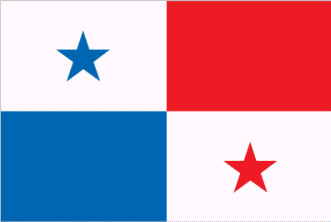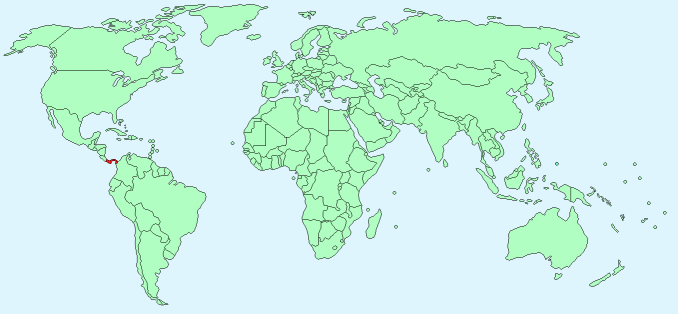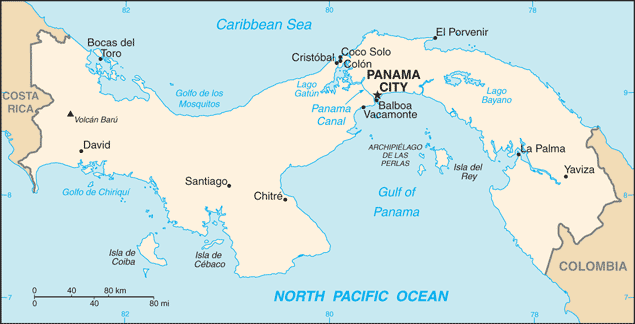Panama


Continent – North America
Region – Central America
Size – 75,420 km²
Geography – steep mountains and hills with coastal plain
Language – Spanish, Indigenous languages
Religion – Roman Catholic, 85%, Protestant, 15%
Monetary Unit – United States Dollar
Natural Resources – copper, mahogany forests, shrimp, hydropower
Agriculture – bananas, rice, corn, coffee, sugarcane, vegetables; livestock; shrimp
Industry – construction, brewing, cement and other construction materials, sugar milling

Neighbouring Countries – Costa Rica, Colombia
Population – 3,657,024 (2015 estimate)
Population Growth Rate – 1.32%
Average Life Expectancy – 78.47
Capital City – Panama City (1,673,000)
Highest Mountain – Volcan Baru (3,475 m)
Longest River – Chucunaque River (231 km)
Climate – Tropical, hot in coastal regions 21°C to 32°C cooler in the mountain regions 14°C to 27°C
Yearly Rainfall – coastal regions 190 cm (approx) mostly May to November
Plant Life – heliconia, hibiscus, ginger, and bougainvillea, poinciana
Animal Life – Capuchin monkey, margay, anteater, sloth, green iguana, golden frog, coati, armadillo, bat, peccary, deer, opossum, tapir, raccoon, alligator
Bird Life – Harpy eagle, toucan, macaw, parrot, hummingbird
Marine Life – Catfish
Harvard Reference for this page:
Heather Y Wheeler. (2015). Panama. Available: https://www.naturalhistoryonthenet.com/Facts_Figures/Country_Facts/panama.htm. Last accessed Tuesday, July 19, 2016
Facts and Figures Pages
